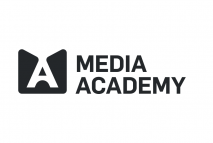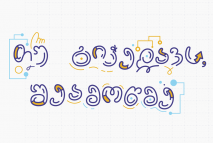Communications Commission: Use of Obscenity and Coarse Language in the Name of Free Speech is designed to Restrict Freedom of Expression and Suppress Differing Opinions
Certain sections of the non-governmental sector are categorising the use of obscenity and hate speech on air as freedom of expression. Moreover, they claim that regulating the use of coarse language and obscenity will threaten freedom of expression in the country. To this end, they are offering false interpretations of the Georgian legislation and the practices of the Constitutional Court, thereby misleading the public. We wish to make it clear that by issuing the statement on 7 December, the Commission has committed itself to upholding the legislation and its duty to protect the public from programmes containing obscenity and coarse language, which represent one of the main problems identified by the Commission through media monitoring.
Georgia is one of the leading countries in Europe with regards to freedom of speech and expression, which is largely due to its liberal media policies. Freedom of speech is one of our most valuable assets, and it is not under threat. As for obscene and coarse language, it has nothing to do with freedom of expression. The use of obscenities and coarse language on air sows aggression, spreads hatred, causes confrontation in the society, escalates the tensions between individuals holding differing views, abuses people’s dignity and damages them.
We all understand that freedom of speech and expression forms the basis for development of the democratic society, and that the state cannot achieve development without a free and independent media. Freedom of expression determines the level of freedom and democracy in the country. However, freedom of expression is not an absolute right. The Georgian constitution recognises and protects freedom of expression, but at the same time, it allows for certain limits to be placed on this freedom. This includes legitimate cases where the line between freedom of expression and violation of other human rights is crossed. The Constitutional Court has also drawn the line at broadcasters airing programmes that contain obscenity.
The Law of Georgia on Broadcasting describes obscenity as an action which is in conflict with ethical norms established in society and which has no social and political, cultural, educational or scientific value. Unless obscenity is necessitated by context or has an informational value, its use can only serve to humiliate a person or discriminate against them on various grounds (ethnicity, religion, politics, sexual orientation etc.). Obscenity can also be used to intimidate persons with differing views or prevent them from expressing their opinions. Ultimately, this stifles contrasting opinions, polarises the society and stigmatises specific groups or individuals, thereby jeopardising the free and democratic development of the society. In this respect, obscenity represents a tool for limiting freedom of expression, rather than promoting it.
In a statement issued on 7 December, the Communications Commission called on the broadcasters to refrain from airing programmes that contain obscenity to avoid violating the legislation and human rights, and specifically to prevent further escalation of aggression, hatred and confrontation in the society. The Commission was subsequently accused by some NGOs of assuming the role of a self-regulatory body and restricting freedom of expression by responding to the programmes that contain obscenity. We believe such accusations to be unsubstantiated and without merit.
We wish to emphasise that the Georgian legislation clearly separates the regulatory and self-regulatory functions. The need for regulation arises when self-regulatory mechanisms are operating ineffectively, thereby jeopardising human rights or damaging private and public interests to a significant degree. Responding to the placement of programmes containing obscenity constitutes one of the regulatory functions of the Commission in cases when self-regulatory mechanisms are operating ineffectively.
The mandate of the Communications Commission as the independent regulator of the broadcasting sector stems from the Law of Georgia on Broadcasting. The Law directly outlines the Commission’s authority to examine any violations of the legislation committed by a broadcaster and impose appropriate sanctions in accordance with Article 71 of the Law. Furthermore, Article 56.4 prohibits the broadcasting of programmes or advertisements abusing a citizen’s and a person’s dignity and their fundamental rights and that contain obscenity. Until 2009, legal response to the aforementioned violations was limited by Article 14.2 and Article 59 (i) of the Law. The Constitutional Court deemed these provisions to be unconstitutional and void for the part that concerns the phrase “broadcasting of programmes or advertisements abusing a citizen’s and a person’s dignity and their fundamental rights and that contain obscenity,” as stated in Article 56.4 (see the 10 November 2009 Constitutional Court judgment №1/3/421,422 in the case “Citizens of Georgia Giorgi Kipiani and Avtandil Ungiadze v. the Parliament of Georgia,” paragraphs 2, 3 and 7 of the resolution).
It is worth noting that the judgment of the Constitutional Court does not contain instructions to the extent that the aforementioned norms are only void for the part concerning an appeal to the court. Furthermore, following the judgment of the Constitutional Court, the Parliament of Georgia has not introduced any similar restrictions preventing the Commission from responding to the placement of programmes containing obscenity. Therefore no such restrictions are currently in force, and as the authority that determines media policy in the country, the Communications Commission is not only authorised, but also obliged to respond to the placement of programmes or advertisements that contain obscenity. In view of the judgment of the Constitutional Court, it would be illogical for the standard to apply only to the cases heard by the courts, and to insist that to examine the case in front of the broadcasting regulator (the Communications Commission) before the courts contravenes the principles of freedom of expression.
Moreover, the Commission derives the aforementioned authority not from the fact that its decisions are controlled by the courts, but from a clear legislative basis. The statement issued by the Commission on 7 December mentioned control by the courts in the context of the standard determined by the Constitutional Court applying equally to the Commission, based on which, a legal response to the broadcasting of obscenity and violation of a person’s fundamental rights does not breach the principles of freedom of expression.
The statement issued by NGOs also uses the 2 August 2019 judgment of the Constitutional Court №1/7/1275 in the case “Aleksandre Mdzinarashvili v. the Georgian National Communications Commission” in a false context. This judgment of the Constitutional Court does not concern broadcasted programmes, but rather the placement of offensive materials online. Regulations concerning expression in broadcasting are outlined in the Law of Georgia on Broadcasting, which directly prohibits the broadcasting of programmes or advertisements abusing a citizen’s and a person’s dignity and his/her fundamental rights and that contain obscenity. As for legal response to the placement of programmes containing obscenity, it does not represent introduction of legislative regulations on the content of freedom of expression, but rather the enforcement of the legislation on broadcasting, as it is the exclusive competence of the Communications Commission according to the Constitutional Court and the Law of Georgia on Broadcasting.










